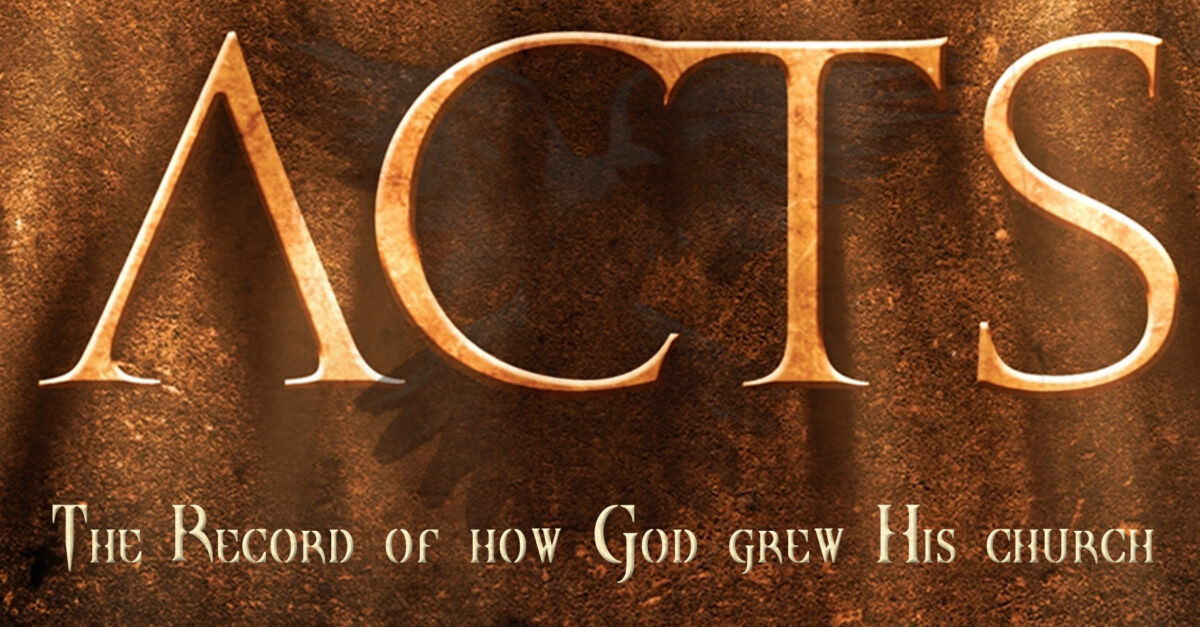Acts 1:21-26
21 Therefore it is necessary to choose one of the men who have been with us the whole time the Lord Jesus was living among us, 22 beginning from John’s baptism to the time when Jesus was taken up from us. For one of these must become a witness with us of his resurrection.”
23 So they nominated two men: Joseph called Barsabbas (also known as Justus) and Matthias. 24 Then they prayed, “Lord, you know everyone’s heart. Show us which of these two you have chosen 25 to take over this apostolic ministry, which Judas left to go where he belongs.” 26 Then they cast lots, and the lot fell to Matthias; so he was added to the eleven apostles.
The 11 disciples that remained had been very close to Jesus all the time. He had taught them when they were away from the crowds. They had helped him in his special work on earth. They had also seen him many times after his resurrection. They had watched him leave the earth. And they had watched him go up to heaven. They wanted the new disciple to be someone who had known Jesus like this. He must tell everyone that Jesus had beaten death. So, he needed to have seen with his own eyes that Jesus was alive.
Barsabbas means ‘son of the Sabbath’. Maybe he was born on the Sabbath day. Justus is a Gentile name. Many Jews had both a Jewish name and a Gentile name.
Eusebius lived from about AD 260 to AD 340. He wrote history. He said that the 70 disciples in Luke 10:1 included Matthias and Barsabbas. But we do not really know that. Luke does not write about Matthias and Barsabbas again.
Verse 24 ‘Then they prayed’. The disciples asked God to choose between Matthias and Barsabbas. God always knows what is best. Therefore, we should pray about everything that we do.
Philippians 4:6-7 New International Version (NIV)
6 Do not be anxious about anything, but in every situation, by prayer and petition, with thanksgiving, present your requests to God. 7 And the peace of God, which transcends all understanding, will guard your hearts and your minds in Christ Jesus.
Judas chose to leave his life as a disciple. Therefore, the place ‘where he belongs’ was not with the disciples. He had been chosen into one place by Jesus, but had made another choice for himself, which had ended in destruction. That “his own place” when thus used was, to the Jewish mind, an equivalent for Gehenna = the place of torment, may be seen from the Baal Haturim on Numbers 24:25, where it is said “Balaam went to his own place, i.e. to Gehenna.”
‘Then they cast lots.’ This was the usual way for Jews to make a choice. It was used many times in the Old Testament.
The practice of casting lots is mentioned 70 times in the Old Testament and seven times in the New Testament. In spite of the many references to casting lots in the Old Testament, nothing is known about the actual lots themselves. They could have been sticks of various lengths, flat stones like coins, or some kind of dice; but their exact nature is unknown. The closest modern practice to casting lots is likely flipping a coin.
The practice of casting lots occurs most often in connection with the division of the land under Joshua (Joshua chapters 14-21), a procedure that God instructed the Israelites on several times in the book of Numbers (Numbers 26:55; 33:54; 34:13; 36:2). God allowed the Israelites to cast lots in order to determine His will for a given situation (Joshua 18:6-10; 1 Chronicles 24:5,31). Various offices and functions in the temple were also determined by lot (1 Chronicles 24:5, 31; 25:8-9; 26:13-14). The sailors on Jonah’s ship (Jonah 1:7) also cast lots to determine who had brought God’s wrath upon their ship. The eleven apostles cast lots to determine who would replace Judas (Acts 1:26). Casting lots eventually became a game people played and made wagers on. This is seen in the Roman soldiers casting lots for Jesus’ garments (Matthew 27:35).
The New Testament nowhere instructs Christians to use a method similar to casting lots to help with decision-making. Now that we have the completed Word of God, as well as the indwelling Holy Spirit to guide us, there is no reason to be using games of chance to make decisions. The Word, the Spirit, and prayer are sufficient for discerning God’s will today—not casting lots, rolling dice, or flipping a coin.
When people ‘cast lots’, they wrote people’s names on stones. They put the stones in a jar. Then they shook the jar until a stone fell out. The name on the stone was the person that they must choose. This was the last time when they cast lots in the New Testament. After the Holy Spirit came, the disciples did not need to do this. Instead, the Holy Spirit guided them.

One reply on “Acts: A New Disciple”
Awesome!!!